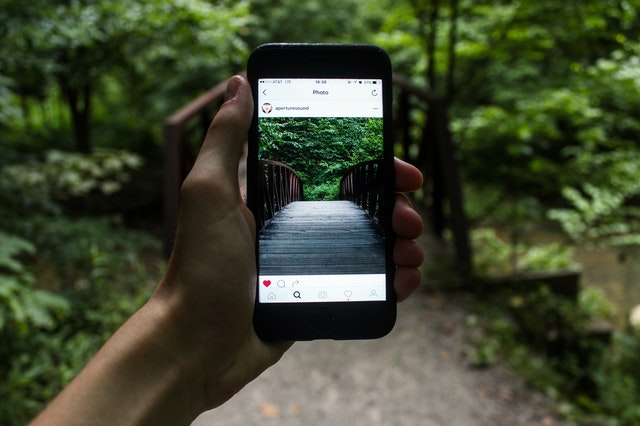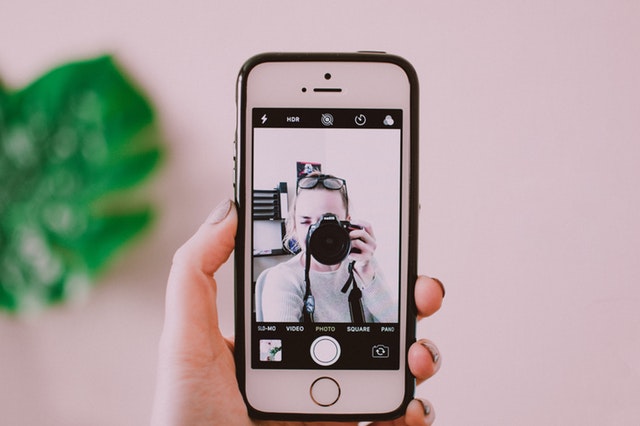 Ever since going vegan and trying to transition to a low-waste lifestyle, I’ve been following eco-friendly Instagram influencers who post inspiring and informative content. Recently, I’ve noticed just how much these communities have been growing on Instagram. There are zero-wasters who can teach you how to completely eliminate plastic from your life. There are homesteaders growing their own food and people building their own tiny houses. And for years, the vegan community on Instagram has been steadily expanding, with countless influencers sharing their recipes and educating their followers on animal welfare.
Ever since going vegan and trying to transition to a low-waste lifestyle, I’ve been following eco-friendly Instagram influencers who post inspiring and informative content. Recently, I’ve noticed just how much these communities have been growing on Instagram. There are zero-wasters who can teach you how to completely eliminate plastic from your life. There are homesteaders growing their own food and people building their own tiny houses. And for years, the vegan community on Instagram has been steadily expanding, with countless influencers sharing their recipes and educating their followers on animal welfare.
For a while, I thought that this was all positive news. Seeing so many people helping their followers transition to a zero-waste lifestyle, ditch animal products for good, or get involved with political, environmental activism seemed like a sign that people were genuinely getting the message—it was time to make a serious change for the good of the planet. When I would click on my Explore page, it was filled with photos of dry goods in glass jars, delicious vegan ice cream, bamboo toothbrush sets, and all-natural skincare.
But eventually, I began to realize that something was off. When I scrolled through these profiles, I was seeing lots of products that would appeal to any environmentally conscious consumer—but many influencers were still prompting their followers to buy things that they didn’t necessarily need.
For example, portable bamboo utensil sets are often promoted on zero waste Instagram accounts. After buying a kit myself, I felt a little silly – after all, I already had a kitchen drawer full of reusable utensils, and nothing was stopping me from keeping a few in my purse to avoid disposable plastics! Most of us don’t need to buy a special set just for the aesthetics, and while the bamboo utensils themselves were probably produced sustainably, they’re usually an unnecessary extra purchase. And yes, mason jars and bento boxes look adorable on Instagram, but repurposing glass jars and other durable containers that were used for food packaging is the cheapest and most eco-friendly way to store leftovers and homemade goodies without resorting to plastic wrap.
Sometimes, alternative materials that seem more sustainable or humane are actually quite harmful to the environment. A vegan influencer might proudly show off their new vegan leather purse or shoes, which is undeniably a more humane choice than real leather—but many types of vegan leather are made from polyvinyl chloride (PVC), a synthetic material that releases toxic chemicals like dioxins into the environment during the manufacturing process. And brands that provide services like vegan meal delivery might make choosing vegan or organic foods more convenient, but they can also create a lot of waste. Overconsumption and making purchases based solely on convenience is one major reason that we ended up in a climate crisis in the first place.
Most influencers make money by working with brands that pay them for sponsored posts featuring their products. And sponsors aren’t going to offer to work with influencers if they’re not confident that the influencer will make them money. There’s the inherent contradiction when it comes to being an influencer in this growing, eco-conscious “niche.” Oftentimes, success and reach as an influencer go hand in hand with one’s ability to generate profits for brands that want to market to their audience.
Companies can engage in “greenwashing” when marketing products to consumers concerned with the environment—a.k.a., advertising a product as eco-friendly even if it’s not—and in a way, some influencers can “greenwash” shopping in general. Sure, it’s far better for someone to buy a plastic-free product in compostable packaging, but posting photos and captions several times per week that encourage thousands of people to spend money on products that will be shipped to their homes from far away might not be the most sustainable thing to do. No matter how well-made, organic, and stylish, making new clothes or products look aspirational for the purposes of selling more to “followers” and “fans” is participating in our late-stage capitalism.
Does this mean that all eco-influencers are actually doing more damage to the planet, or that there’s no way to be an influencer in this niche without contradicting yourself by encouraging consumption? Thankfully, the answer is no.
“Influencer” may be a dirty word to some, but I do think that vegan, zero-waste, and eco-conscious influencers are helping educate the general public in a way that makes this information accessible and easily digestible. And to be completely fair, I have discovered some interesting reusable products that would make it easier to reduce my plastic waste through Instagram. But they definitely have to toe a certain line—completely foregoing sponsorships generally means that they will inevitably make less than other influencers, and potentially have a smaller reach. However, telling their followers to buy, buy, buy goes against the whole idea of living a low-impact lifestyle.

Perhaps instead of leaving it up to the influencers to spread the word on social media, those of us who are on these platforms can share the changes we’ve made in our lives, even if we don’t have many followers. Being outspoken about being vegan or zero-waste, or posting about environmental activism, might feel a little uncomfortable. But if you’re happy living this lifestyle, and you want to show others that it’s simpler than they might think, why not show off the random jars you’ve saved from pasta sauce and almond butter that you use for storage now? The peanut butter and banana smoothie you made this morning might not look as glamorous as the bright, fruity acai bowls on your Instagram feed, but what if seeing an easy recipe helps someone realize that maybe being vegan isn’t so complicated after all?
And remember: the key to living a “green” lifestyle isn’t buying bamboo utensils or lots of cute Mason jars. You don’t have to keep your pantry stocked with trendy superfoods to be vegan. At the end of the day, we all need to start buying less, sharing what we have, and seeking out thrifty, secondhand options whenever possible. This may not always look as aesthetically pleasing on Instagram, but sustainability is about doing what’s best for the planet, not what’s most profitable.
Also by Jane: Burning Sage To Cleanse Your Space? Why You’ll Want To Think Twice
Electric Cars Will Not Save The Planet—& Their Ecological Cost Is Shockingly High
Get more like this—Sign up for our daily inspirational newsletter for exclusive content!
__




